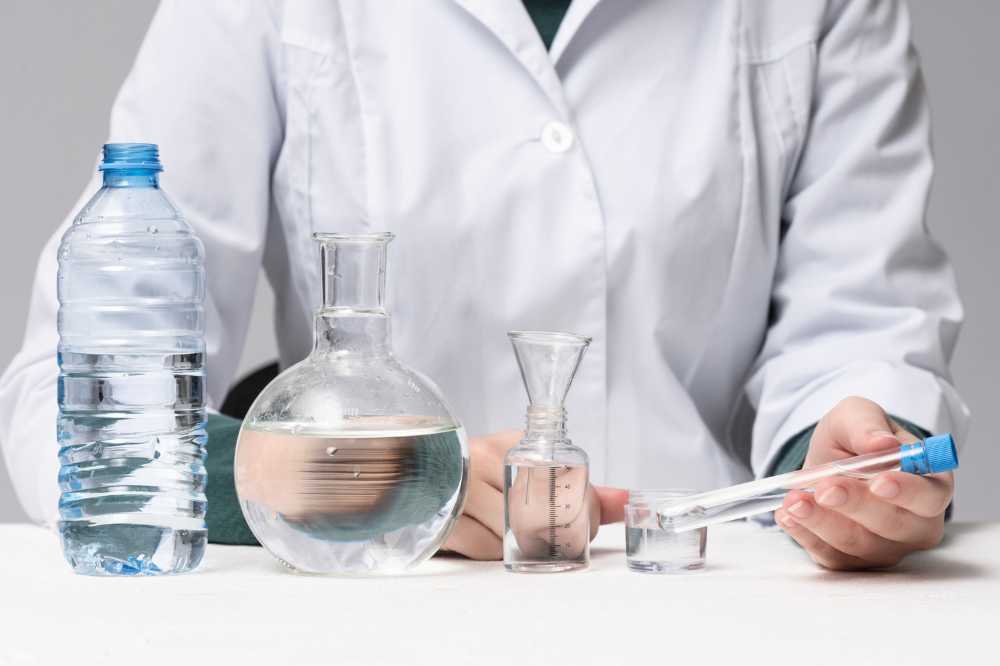Shriram Food and Pharma Research Center
Water Testing
Physical, Chemical & Microbiological Analysis
We offer testing services for water
Our water testing lab offers a comprehensive range of testing services to meet the diverse needs of our clients. We have state-of-the-art equipment and highly skilled professionals who can provide accurate and reliable results. Our water testing services include both standard and customized testing options, depending on the specific requirements of our clients.
We offer testing services for drinking water, wastewater, groundwater, surface water, and more. Our drinking water testing services cover a broad range of contaminants, including bacteria, viruses, heavy metals, pesticides, and other pollutants that can affect human health. Our wastewater testing services can detect various contaminants, such as nutrients, chemicals, and pathogens, that can harm the environment.
Our groundwater testing services can help identify potential sources of contamination and assess the water quality of wells and other groundwater sources. We also offer surface water testing services that help identify potential contamination from agricultural and industrial activities, as well as other human-made sources.
At our water testing lab, we are committed to delivering accurate and timely results to our clients. We adhere to strict quality control standards and follow standard testing protocols to ensure the reliability of our results. Our team of experts can also provide guidance and recommendations based on our findings, helping our clients make informed decisions about their water management practices.
Overall, our water testing services are crucial for ensuring the safety of drinking water, protecting the environment, and meeting regulatory standards. We are committed to providing high-quality testing services to our clients to help them manage their water resources effectively.

Why quality testing of water is an important aspect ?
Quality testing of water is necessary for several reasons. Firstly, water is essential for human health and well-being, and ensuring that it is safe to drink is of utmost importance. Quality testing can detect the presence of harmful contaminants such as bacteria, viruses, and chemicals that can cause serious health problems.
Secondly, water is used in many industrial and commercial applications, and the quality of water can impact the quality of the final product or service. Poor water quality can also damage equipment, leading to costly repairs or replacements.
Thirdly, water bodies such as lakes, rivers, and oceans are critical ecosystems, and pollution can have severe impacts on aquatic life and the environment. Quality testing of water can help to identify potential sources of pollution and prevent further damage to the environment.
Furthermore, regulatory bodies such as the Environmental Protection Agency (EPA) set standards for water quality to protect human health and the environment. Quality testing of water helps to ensure that these standards are met, and that water resources are being used responsibly and sustainably.
In summary, quality testing of water is necessary to protect human health, maintain product quality, preserve the environment, and comply with regulations. By testing water quality regularly, we can ensure that we are using water resources responsibly and sustainably, and prevent harm to ourselves and the planet.
Our water testing parameters
As a water testing lab, our parameters for testing water quality are extensive and include the following:
Physical parameters: This includes the testing of physical properties of water such as temperature, color, turbidity, pH, electrical conductivity, total dissolved solids, total suspended solids, and hardness.
Chemical parameters: This includes the testing of chemical properties of water such as alkalinity, acidity, chloride, fluoride, sulfate, ammonia, nitrate, and heavy metals such as lead, arsenic, and mercury.
Microbiological parameters: This includes the testing of microorganisms such as bacteria, viruses, and protozoa that can cause waterborne diseases like cholera, typhoid fever, and dysentery.
Pesticides and herbicides: This includes the testing of water for the presence of pesticide and herbicide residues, which can cause harm to human health and the environment.
Radioactive isotopes: This includes the testing of water for the presence of radioactive isotopes such as uranium, radon, and radium, which can cause cancer.
Organic contaminants: This includes the testing of water for the presence of organic contaminants such as polycyclic aromatic hydrocarbons (PAHs), polychlorinated biphenyls (PCBs), and volatile organic compounds (VOCs).
Emerging contaminants: This includes the testing of water for emerging contaminants such as pharmaceuticals, personal care products, and endocrine-disrupting compounds.
By testing water for these parameters, we can ensure that the water we use is safe for consumption, industrial processes, and the environment. We use state-of-the-art equipment and methods to ensure accurate and reliable results, which are crucial for making informed decisions about water use and management.
Type of water we test
- Packaged Drinking Water
- Packaged Natural Mineral Water
- Drinking Water
- RO Water
- Swimming pool
- Spa Water
- Waste Water
- Effluent Water
- Sewage Water
- Tap water
- Surface water
- Ground water
- Lake water
- Pond water
- River water
- Spring water
- Borewell water
- Stream water
- Distribution System water
- Demineralized water
- Water for Processed Food Industry
